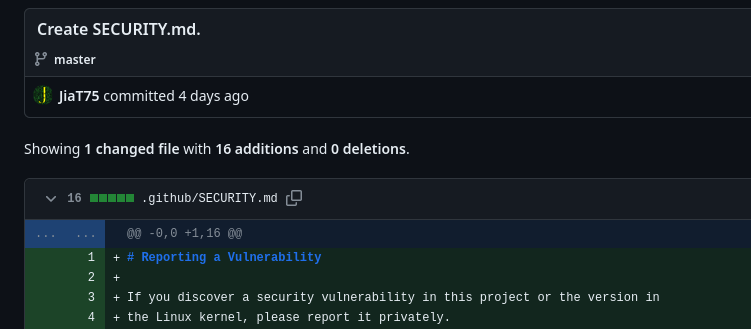- cross-posted to:
- security@lemmy.ml
- cross-posted to:
- security@lemmy.ml
Since the actual operation of the liblzma SSH backdoor payload is still unknown, there’s a protocol for securing your impacted systems:
• Consider all data, including key material and secrets on the impacted system as compromised. Expand the impact to other systems, as needed (for example: if a local SSH key is used to access a remote system then the remote system must be considered impacted as well, within the scope the key provides).
• Wipe the impacted host and reinstall it from scratch. Use known good install that does not contain the malicious payload. Generate new keys and passwords. Do not reuse any from the impacted systems.
• Restore configuration and data from backups, but from before the time the malicious liblzma package was installed. However, be careful not to allow potentially leaked credentials or keys to have access to the newly installed system (for example via $HOME/.ssh/authorized_keys).
This handles the systems themselves. Unfortunately any passwords and other credentials stored, accessed or processed with the impacted systems must be considered compromised as well. Change passwords on web sites and other services as needed. Consider the fact that the attacker may have accessed the services and added ways to restore access via for example email address or phone number in their control. Check all information stored on the services for correctness.
This is a lot of work, certainly much more than just upgrading the liblzma package. This is the price you have to pay to stay safe. Just upgrading your liblzma package and hoping for the best is always an option, too. It’s up to you to decide if this is a risk worth taking.
This recovery protocol might change somewhat once the actual operation of the payload is figured out. There might be situations where the impact could be more limited.
As an example: If it turns out that the payload is fully contained and only allows unauthorized remote access via the tampered sshd, and the host is not directly accessible from the internet (the SSH port is not open to internet) this would mean that it might be possible to clean up the system locally without full reinstall.
However, do note that the information stored on the system might have still been leaked to outside world. For example leaked ssh keys without a passphrase could still afford the attacker access to remote systems.
This is a long con, and honestly the only people at fault are the bad actors themselves. Assuming Jia Tan’s GitHub identity and pgp key weren’t compromised by someone else, this backdoor appears to be the culmination of three years of work.
Some no-name came and without any problems asked to become a maintainer in a project used in almost any distro, took it over, put a backdoor in there and no one had any questions? In this case, everything turned out thanks to pure chance. Noname screwed up his backdoor, which attracted the attention of a guy from Microsoft, and out of boredom, he dug up what was what. And if I hadn’t messed up, or that guy from Microsoft decided to go drink beer instead of poking around in the xz code, then no one would have discovered anything. It’s scary to imagine how many of these nonames are sitting in all these thousands of open source projects, waiting in the wings to roll out a malicious patch.
Is this only happened with SSH, or other network facing services using liblzma too?
We know that sshd is targeted but we don’t know the full extent of the attack yet.
t y for sharing.
#showerthoughts The problem is in upstream and has only entered Debian Sid/unstable. Does this mean that for example bleeding edge Arch (btw) sshd users are compromised already ?
Arch is on 5.6.1 as of now: https://archlinux.org/packages/core/x86_64/xz/
We at Nixpkgs have barely evaded having it go to a channel used by users and we don’t seem to be affected by the backdoor.
Arch had a patch rolled out yesterday [1][2][3] that switches to the git repo. On top of that the logic in the runtime shim and build script modifier was orchestrated to target Debian and RPM build systems and environments [4].
[2] https://gitlab.archlinux.org/archlinux/packaging/packages/xz/-/issues/2
[3] https://security.archlinux.org/CVE-2024-3094
[4] https://www.openwall.com/lists/oss-security/2024/03/29/4
Homebrew rolled back the release after finding out
The person who found the backdoor : https://mastodon.social/@AndresFreundTec/112180083704606941
Lzma balls
It seems like a RCE, rather an auth bypass once though. https://bsky.app/profile/filippo.abyssdomain.expert/post/3kowjkx2njy2b
Damn fine work all around.
I know this is an issue fraught with potential legal and political BS, and it’s impossible to check everything without automation these days, but is there an organization that trains and pays people to work as security researchers or QA for open source projects?
Basically, a watchdog group that finds exploitable security vulnerabilities, and works with individuals or vendors to patch them? Maybe make it a publicly owned and operated group with mandatory reporting of some kind. An international project funded by multiple governments, where it’s harder for a single point of influence to hide exploits, abuse secrets, or interfere with the researchers? They don’t own or control any code, just find security issues and advise.
I don’t know.
Just thinking that modern security is getting pretty complicated, with so many moving parts and all.
I will laugh out loud if the “fixed” binary contains a second backdoor, but one of better quality. It’s reminiscent of a poorly hidden small joint, which is naturally found, and then bargaining, apologizing and making amends begin. Although now it is generally not clear where the code is more proven.

Time to bring back the reproducible build hype
Reading the comments here https://news.ycombinator.com/item?id=39865810 it appears that libarchive may be tainted as well.
Here is the official statement from OpenSUSE: https://news.opensuse.org/2024/03/29/xz-backdoor/





